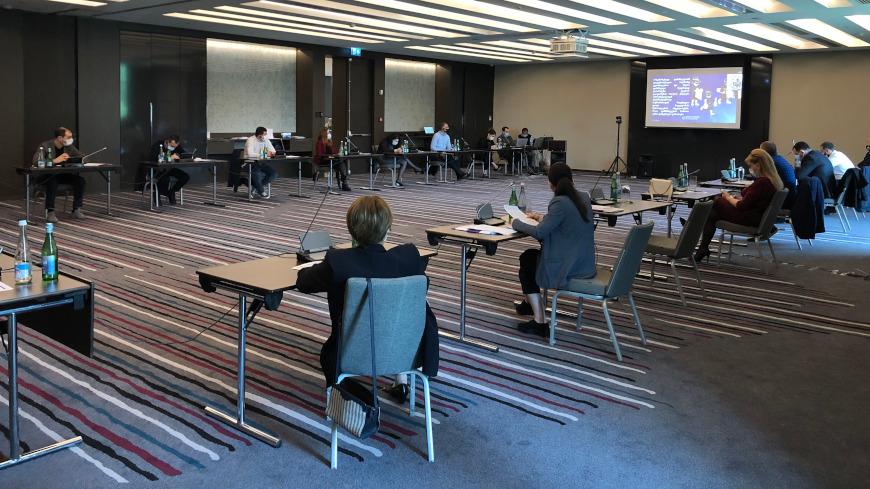The Council of Europe in cooperation with the Office of the Prosecutor General of Georgia organised a two-day training on “Financial investigation of money laundering/financing of terrorism cases”.
The activity was delivered in “hybrid” format with the online involvement of international Council of Europe experts and on-site participation of members of the Prosecutor’s Office, the State Security Service of Georgia, the Investigation Service of the Ministry of Finance and the Financial Monitoring Service.
The activity intended to familiarise Georgian investigators and prosecutors with the diverse and innovative investigation methods currently used internationally in financial investigation. Participants benefited from interactive presentations and discussions about the role of financial investigation in law enforcement, its characteristics in money laundering and terrorism financing cases, the use of open source intelligence or covert human intelligence, virtual currencies, and new technologies. An important part of the training was also dedicated to the mechanisms of mutual legal assistance and to recommendations on maximising success in their implementation. In addition to the analysis of relevant international standards and best practices, useful online materials and references were provided that will assist Georgian investigators and prosecutors in conducting financial investigation of Money Laundering and Financing of Terrorism (ML/FT) cases in the future.
Focusing on the main challenges encountered in the application of various techniques, this activity aimed at supporting the Georgian authorities to improve their financial investigation practices, which was defined as a priority area in the ML/TF Risk Assessment of Georgia (NRA 2019). Its significance is also underlined in the 2017-2021 Action Plan of the Prosecutor's Office of Georgia according to which necessary measures need to be taken to improve parallel financial investigation practices. At the same time, the training is an important step to comply with the recommendation of the MONEYVAL 5th Round Evaluation Report of Georgia (2020) referring to the improvement of the effectiveness of financial investigations in Georgia.
The event was carried out with full respect of Georgian Government’s Covid-19 pandemic regulations as well as those established by the Council of Europe.
This activity was organised within the framework of the project “Enhancing the systems of prevention and combating corruption, money laundering and terrorist financing in Georgia” financed by the European Union and the Council of Europe, implemented by the Council of Europe in their Partnership for Good Governance II Programme.





